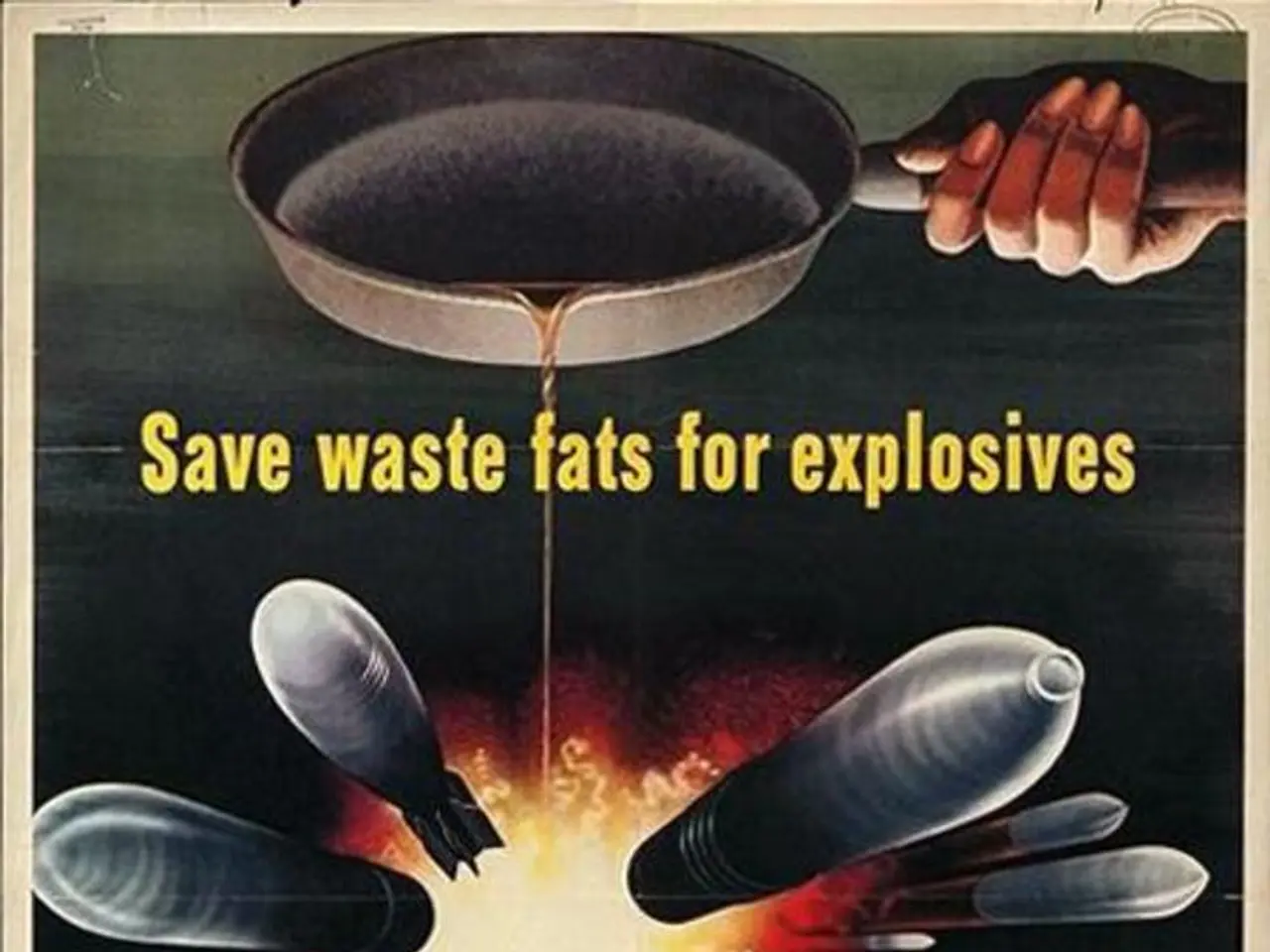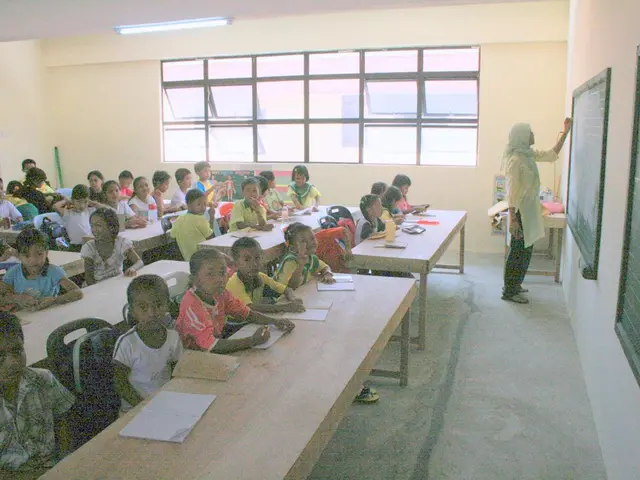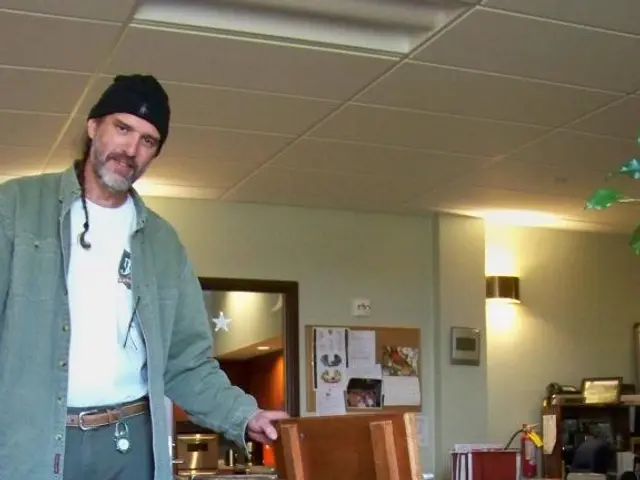Decision Making on Nuclear Arsenals - Navigating Vulnerabilities amidst History and Future Prospects
In a series of presentations and discussions, experts from various fields gathered to share insights on the complex relationship between nuclearization and democracy. The NUCLEAR project, a research initiative, is at the forefront of this exploration, proposing innovative methods to study this relationship.
Kjølv Egeland, a researcher at NORSAR, spoke about the influence of ideologies and narratives in a nuclear world, using primary sources in Arabic and Hebrew to shed light on the struggles to produce and stabilize nuclear timescapes and narratives. Hebatalla Taha delved into nuclear histories and futures in the Middle East, while Paul Edwards, co-director of the Stanford Existential Risks Initiative, discussed imagined futures and memories of the past that have shaped the possibilities of the nuclear Middle East and Egypt in particular.
The presentations offered a new framework to study how the scope of publicly available nuclear weapons choices is being decided and showed how the illusion of absence of alternatives to nuclear weapons policies is produced. This research aims to enable a productive debate about nuclear weapons policy that takes seriously the struggles over imagined futures as well as memories of the past.
Benoît Pelopidas, an associate professor at CERI Sciences Po, chaired and discussed the session "The Constitutive Effect of Imagined Futures and Memories". Sterre van Buuren, a research assistant for the ERC project NUCLEAR, discussed conceptual incompatibilities of democratic control in nuclear decision-making. Alexander Sorg and Kjølv Egeland were speakers in the session "Survey Results - The Myth of Nuclear Consensus".
The ideas of a "consensus" about the long-term goal of nuclear disarmament, NATO as a "nuclear alliance", "nuclear order" being desirable, the period of 1986 to 1995 being labelled as a "golden age of disarmament" play a crucial role in shaping understandings of nuclear weapons policies.
At the closing remarks, new resources for researchers and educators were presented, including survey results, primary sources, video toolkits, visuals in French and English. The discussion covered topics such as security studies, 20th century history, Anthropocene history, IR, history of democratisation and de-democratisation, and environmental humanities.
Emerging challenges include the inadequacy of existing arms control verification, especially given the dual-use nature of civilian nuclear programs and the limits of international monitoring bodies, which affects how democracies manage proliferation risks in non-democratic states. Another challenge is the political difficulty in reducing reliance on nuclear weapons, as some nuclear-armed democracies invest in modernizing arsenals despite the democratic ideal of disarmament.
In conclusion, the NUCLEAR project and related research advocate for multidisciplinary, dynamic frameworks that incorporate political regime types, technological change, public engagement, and global governance to better understand and address how nuclearization affects democracy and international peace. These frameworks seek to move beyond static deterrence theories toward approaches that emphasize arms control inclusivity, democratic security cooperation, and nuclear disarmament as integral to sustaining democratic peace.
[1] Democracy and Nuclear Weapons (Session) [2] The Constitutive Effect of Imagined Futures and Memories (Session) [3] Survey Results - The Myth of Nuclear Consensus (Session) [4] The Role of Factors Beyond Control in the Avoidance of Unwanted Nuclear Explosions (Presentation) [5] The Effects of Nuclearization on Democracy and World Politics (Presentation)
- The NUCLEAR project, a research initiative, emphasizes the importance of multidisciplinary, dynamic frameworks to comprehensively understand the complex relationship between nuclearization and democracy in the context of democracy and Nuclear Weapons.
- Kjølv Egeland, a researcher at NORSAR, shared insights from primary sources in Arabic and Hebrew during The Constitutive Effect of Imagined Futures and Memories session, elucidating the influential role of narratives and ideologies in a nuclear world.
- In the Survey Results - The Myth of Nuclear Consensus session, Alexander Sorg and Kjølv Egeland, along with other speakers, discussed the concepts that shape understandings of nuclear weapons policies, such as the perceived consensus about nuclear disarmament, among others.
- Emerging challenges in understanding and addressing the impact of nuclearization on democracy and international peace include the inadequacy of existing arms control verification due to the dual-use nature of civilian nuclear programs and the limitations of international monitoring bodies.
- Situating the study of nuclearization within the broader context of science, technology, education, lifestyle, entertainment, general news, finance, space and astronomy, sports, and education and self-development is essential, as these disciplines provide a holistic approach to the effects of nuclearization on democracy and world politics.




